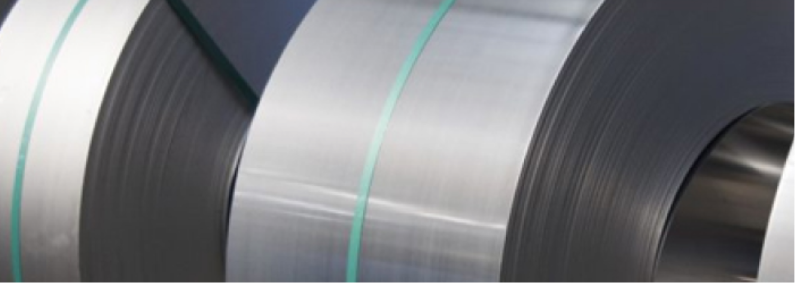Hastelloy

Hastelloy is a family of nickel-molybdenum and nickel-chromium-based superalloys known for their exceptional corrosion resistance and high-temperature strength. Developed to withstand the harshest environments, Hastelloy alloys are particularly valuable in industries such as chemical processing, petrochemicals, oil and gas, and aerospace, where extreme conditions demand materials that won’t degrade over time. Hastelloy alloys are widely used in applications that involve corrosive media, including acids, seawater, and high-temperature gases.
The most widely used types of Hastelloy are Hastelloy C-276, Hastelloy X, and Hastelloy B-3, each suited for specific industrial needs based on their distinct compositions and properties.
Key Properties of Hastelloy
- Exceptional Corrosion Resistance: Hastelloy alloys provide superior resistance to a wide range of corrosive chemicals, including acids like sulfuric, hydrochloric, and hydrofluoric, making them ideal for chemical and petrochemical industries.
- High-Temperature Strength and Stability: Hastelloy maintains its mechanical properties at high temperatures, making it suitable for applications that require both strength and corrosion resistance in extreme heat.
- Oxidation Resistance: Hastelloy alloys resist oxidation, particularly in high-temperature applications, which makes them well-suited for furnaces, gas turbines, and chemical processing equipment.
- Resistance to Pitting and Crevice Corrosion: Hastelloy alloys are highly resistant to localized corrosion, including pitting and crevice corrosion, making them ideal for environments where chloride ions are present.
- Versatile Fabricability: Hastelloy can be readily fabricated, welded, and machined, which makes it a versatile choice for custom parts and intricate industrial components.
Types of Hastelloy Alloys
- Hastelloy C-276 (UNS N10276): Known for its versatility and resistance to a wide range of chemicals, including strong acids, chlorides, and oxidizers, C-276 is widely used in chemical processing, pollution control, and marine industries.
- Hastelloy X (UNS N06002): Hastelloy X is an oxidation-resistant alloy that performs well at high temperatures. It’s commonly used in gas turbines, furnace applications, and petrochemical processing, where both high strength and oxidation resistance are required.
- Hastelloy B-3 (UNS N10675): Hastelloy B-3 offers excellent resistance to hydrochloric acid at all temperatures and concentrations, along with resistance to sulfuric, acetic, and phosphoric acids. It is used extensively in chemical processing environments where hydrochloric acid is present.
- Hastelloy G-30: This alloy is designed to provide exceptional resistance to oxidizing acids, particularly phosphoric and sulfuric acids, and is widely used in fertilizers and chemical processing.
- Hastelloy C-22: An improved version of C-276, C-22 provides enhanced resistance to pitting and crevice corrosion. It’s suitable for applications in chemical processing, waste treatment, and seawater environments.
Applications of Hastelloy
- Chemical Processing
- Due to its resistance to a wide range of acids and corrosive chemicals, Hastelloy is commonly used in reactors, heat exchangers, and piping systems in the chemical and petrochemical industries.
- Oil and Gas Industry
- Hastelloy’s durability in corrosive environments makes it ideal for pipelines, valves, and offshore equipment that encounter sulfur compounds, acidic gases, and seawater exposure.
- Aerospace and Gas Turbines
- Hastelloy X is especially valuable in aerospace applications and gas turbines, where high-temperature oxidation resistance and mechanical stability are essential for turbine blades, combustion chambers, and afterburners.
- Pollution Control Equipment
- Used in scrubbers, stacks, and ducts for waste treatment, Hastelloy alloys provide durability in equipment that encounters harsh chemical exposure and varying temperatures.
- Pharmaceutical and Food Processing Equipment
- Hastelloy’s resistance to organic and inorganic chemicals makes it a preferred material for sanitary equipment in pharmaceutical and food processing applications where cleanliness and corrosion resistance are paramount.
Advantages of Hastelloy
- Outstanding Corrosion Resistance: Hastelloy alloys resist a broad spectrum of acids and chemicals, minimizing maintenance and extending the lifespan of equipment in aggressive environments.
- High-Temperature Strength: Hastelloy’s strength and stability at elevated temperatures make it a reliable choice for demanding applications like gas turbines and chemical reactors.
- Durability in Harsh Environments: Hastelloy alloys withstand the effects of pitting, crevice corrosion, and cracking, especially in chlorides and reducing acids.
- Ease of Fabrication: Hastelloy can be readily welded, machined, and fabricated into various forms, allowing custom configurations and complex component designs.
Grades and Specifications for Hastelloy
- Hastelloy C-276 (UNS N10276): Known for universal corrosion resistance, especially in sulfuric, hydrochloric, and other acids.
- Hastelloy X (UNS N06002): High-temperature oxidation resistance, often used in gas turbines and furnace components.
- Hastelloy B-3 (UNS N10675): Resistant to hydrochloric acid and other reducing chemicals, suitable for chemical processing.
- Hastelloy C-22 (UNS N06022): Improved version of C-276 with added resistance to crevice and pitting corrosion, ideal for waste treatment and marine applications.
Consider Hastelloy for Demanding Environments
Hastelloy’s ability to withstand extreme temperatures and corrosive environments makes it a top choice for industries where reliability and durability are crucial. Its versatility in chemical, aerospace, and industrial applications allows it to provide long-term performance in challenging conditions. Reach out to our experts to learn more about Hastelloy and find the best alloy to meet your project’s specific needs.
FAQs
Hastelloy’s resistance to a wide range of corrosive chemicals, including strong acids, chlorides, and oxidizers, makes it ideal for use in chemical processing equipment where other materials may corrode over time.
While stainless steel can withstand high temperatures, Hastelloy offers superior oxidation and corrosion resistance, especially in environments with aggressive chemicals or extreme temperatures, making it more reliable for long-term use.
Hastelloy can be welded, but due to its strength, it requires specialized techniques and filler materials to prevent cracking or other weld defects. Hastelloy C-276, for instance, is highly weldable and used in many fabricated components.

Products
Industry We Serve
- Oil & Gas industries
- Chemical process industries
- Pump and valve in high pressure component
- Food industries
- Pulp and paper industry
- Aerospace industry
- Power plant
- Mechanical component
- Sugar industry
- Cement industry
